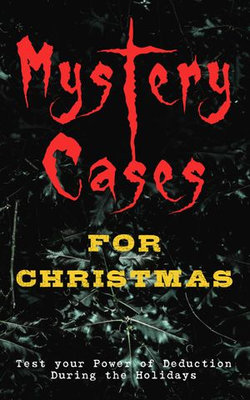Who doesn't like a dose of mystery in a festive season? And who would ever say no to the master story tellers when they have these tingling Christmas mysteries for you: The Adventure of the Blue Carbuncle (Arthur Conan Doyle) The Black Bag Left on a Door-Step (Catherine L. Pirkis) A Policeman's Business (Edgar Wallace) The Flying Stars (G. K. Chesterton) Percival Bland's Proxy (R. Austin Freeman) A Christmas Capture (Fred M. White) McAllister's Christmas (Arthur Cheney Train) The Mystery of Room Five (Fred White) Stuffing (Edgar Wallace) Mr Wray's Cash Box or, the Mask and the Mystery (Wilkie Collins) The Adventure of the Second Swag (Robert Barr) An Exciting Christmas Eve or, My Lecture on Dynamite (Arthur Conan Doyle) A Chaparral Christmas Gift (O. Henry) A Christmas Tragedy (Emmuska Orczy) Mustapha (Sabine Baring-Gould) The Thieves Who Couldn't Stop Sneezing (Thomas Hardy) Joseph: A Story (Katherine Rickford) The Grave by the Handpost (Thomas Hardy)



Share This eBook: